A String Orchestra Broadens a High School Curriculum
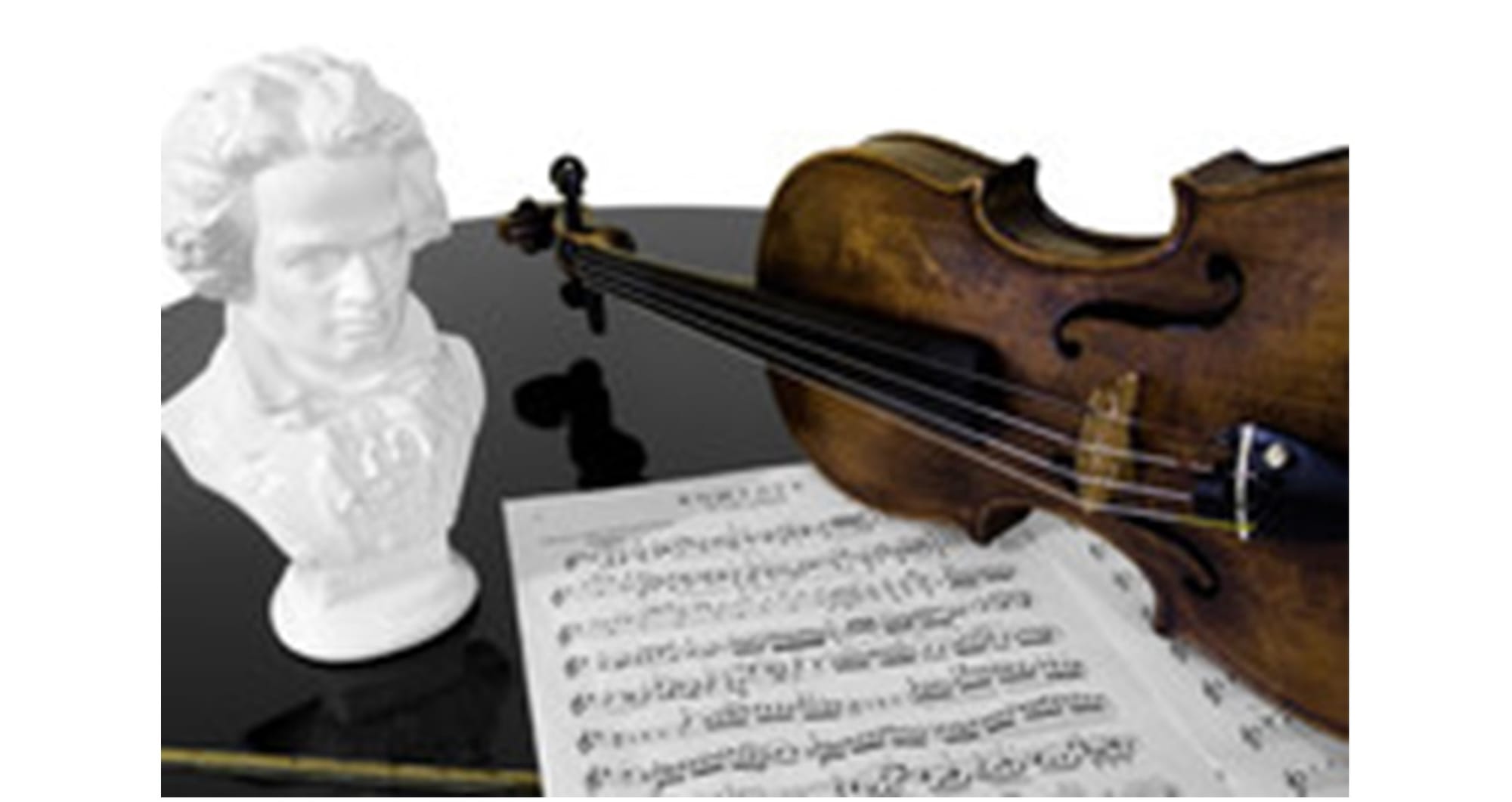
High school is a time of academic exploration, personal growth, and the pursuit of various interests. Among these interests, string orchestra programs hold a unique and enriching place in students' lives. Beyond the strings and symphonies, participation in a string orchestra has a profound impact on a high school curriculum. In this article, we will investigate how string orchestra programs enhance high school curricula in numerous ways.
1. Cultivates Musical Proficiency
At the heart of any string orchestra program is the development of musical proficiency. Students who become part of the orchestra have the opportunity to master their chosen string instruments, whether it be the violin, viola, cello, or double bass. They learn proper technique, note-reading skills, and how to create beautiful melodies and harmonies. They must also navigate intricate intervals and pitch variations, using the parts of the brain that are responsible for spatial-temporal reasoning and fine-tuning auditory discrimination.
Furthermore, the synchronization required for playing in a string orchestra demands keen attention and coordination. String orchestra musicians must follow a conductor's cues, harmonize in tune with fellow players, and adjust their tempo and pitch in real-time. This multi-faceted cognitive demand sharpens mental agility and concentration, contributing to improved cognitive flexibility and problem-solving skills.
Music is a union of mathematical / logical thinking and creative / emotional thinking. And, while the two hemispheres of the brain are not totally distinct in their functions, it is true that playing a stringed instrument, as with any other musical expression, tends to build neural links between the two halves, thus increasing the different ways that the brain can function. This, in turn, enables the brain to be able to create and do problem solving with more complete understanding and application.
It is said that musicians in an ensemble need at least three eyes, two for the music and one for the conductor. A fourth eye to monitor the actions of fellow orchestra members wouldn’t hurt. Playing in a group of musicians can augment one’s perception and awareness of the surroundings.
Together, all of these skills serve as a strong foundation for a lifelong appreciation of music.
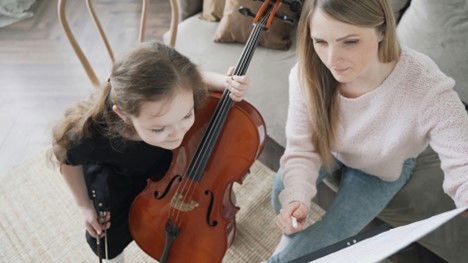
2. Fosters Discipline and Dedication
Participating in a string orchestra requires discipline and dedication. Here is a short list of some of the things that students must do cultivate their sense of discipline and dedication:
> Commit to Learning New Music – These may be easy for the student or they may be complex musical compositions. In either case, there must be some sense of adventure, a willingness to take a way less traveled. Just implementing the determination to see this journey to its end is a great way to begin. To quote Mary Poppins, “Well begun is half done”.
> Practice Diligently – This is what musicians do alone, preparing to meet with other musicians to make music. This may be the most difficult step of all of them. It seems that many people wait to find time for the important things in their lives. The reality of life is that for those important things, one must make time, not that we can actually create time. But, the time must be carved out of what could be viewed as a busy schedule. Most people, when they examine their schedules honestly, discover that a lot of time is spent doing things that do not contribute anything truly meaningful to their lives, e.g., playing video games, scrolling or trolling on social media.
> Attend Regular Rehearsals – For most high school students, this is very easy because it’s part of the daily or weekly schedule. For others, particularly those who are homeschooled, this may take some of that time making skill discussed above. Not only would students need to attend rehearsals physically, but they must also be prepared when they arrive, having practiced diligently beforehand, as well as have a good, positive attitude. This attitude should be honestly positive, based on productive practice sessions, not on some wishful thinking or false sense of pride of accomplishment.
Together, these skills teach students the value of persistence and hard work—a quality that extends to other aspects of their high school studies and future endeavors.
3. Building a Sense of Unity and Cooperation
Orchestra members must work as a team to create harmonious music. They must listen to each other, follow the conductor's cues, and play their individual parts in harmony with the group. This collaborative spirit fosters a sense of unity and cooperation that goes beyond the rehearsal room. Students develop teamwork skills that are invaluable in academic group projects and future professional settings.
The flip side of cooperation and unity could be empathy. When everyone is feeling their best and playing their best, the sense of unity and cooperation van be strong. However, not everyone will be feeling or doing their best on any given day. So, with the passage of enough time, everyone in the group will have had a bad day of one degree or another, and will have experienced the need for the grace and mercy of the other players. When others know what it’s like to need the grace and mercy of others, they may be more likely to extend those gifts to others, thereby reducing any friction or ill-will that may have developed when thoughtlessness is used instead of grace.
4. Enhancing Cognitive Abilities
Playing a string instrument engages various cognitive functions. Students must read sheet music, understand musical symbols, and coordinate their fingers to produce precise sounds. This mental stimulation sharpens cognitive abilities such as memory, problem-solving, and spatial reasoning.
Research has shown that involvement in music education can enhance academic performance in other subjects, making it a valuable addition to the high school curriculum. Music skill of any sort tends to create new synapses between the two hemispheres of the brain because playing or singing requires the “specialties” contained in each part of the brain.
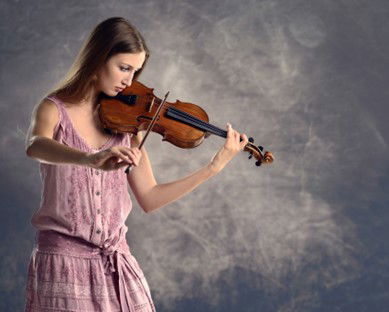
5. Nurturing Emotional Expression
The phrase "music has charms to sooth a savage breast" (from The Mourning Bride, a poem by William Congreve) is well-known and seems to be very true. Music is, indeed, a universal language for emotions, and playing in a string orchestra allows students to express their feelings through their instruments. It has also often been said that stringed instruments sound the most like a human voice, which adds power to the player’s emotional expression. They learn to convey a wide range of emotions, from joy and exuberance to sadness and introspection, without uttering a single word. This emotional outlet can be therapeutic and help students better understand and manage their own emotions.
One true sign of maturity is being able to see and interpret facial and body language signals. Very young children interpret the wide variety of facial expressions with only a few outcome, e.g., happy, sad or angry. As people mature, their understanding of these expressions begin to encompass a wider and wider assortment of emotions that are conveyed by the face or body, e.g., confusion, bewilderment, coy pleasure or regret.
This ability to interpret emotions stems from experiencing them. Being able to express them can be hard for some, and those who can use their music to express their emotions can also see and interpret them better, reducing misunderstanding an conflict, as well as empowering these musicians to detect falsehoods and deceptions.
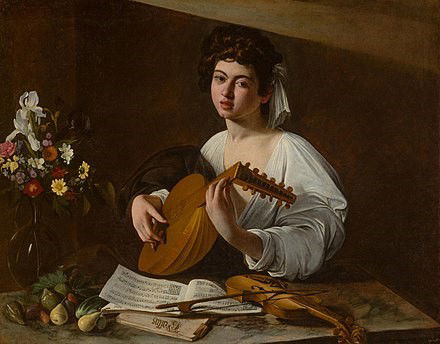
6. Expanding Cultural Awareness
String orchestras often explore a diverse repertoire of music from different cultures and historical periods. Through the study and performance of such music, students are exposed to cultural diversity and rich artistic traditions. This exposure broadens their horizons, fosters cultural awareness, and promotes an appreciation for the global tapestry of human creativity.
There is probably a wider variety of stringed instruments than any other type. Students who have played even just one type will have a greater understanding of other types, and of the peoples who play them. Sometimes, the style of instrument, or its tuning, can say a lot about a culture, and students who are familiar with different stringed instruments can appreciate the differences in cultures.
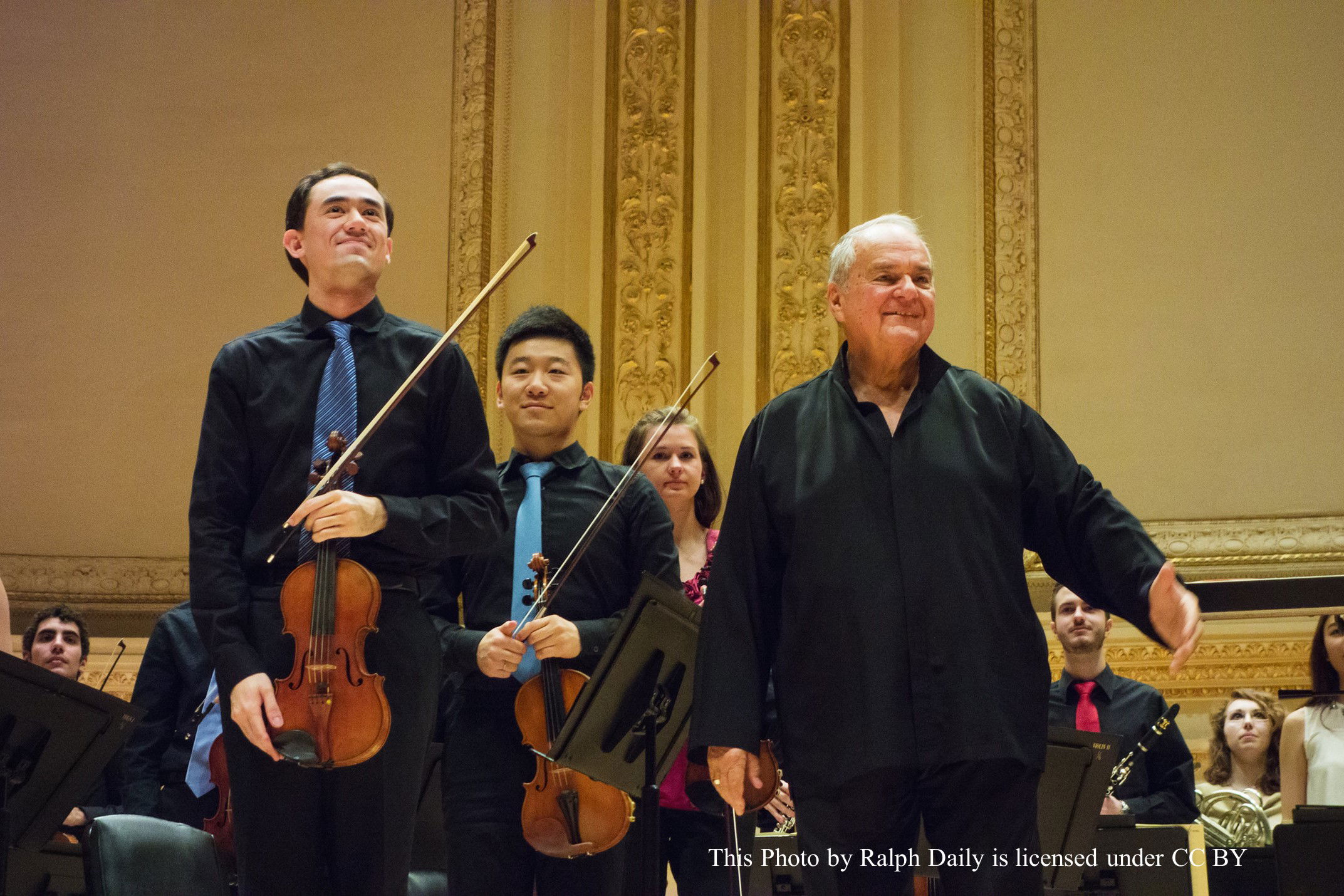
7. Developing Personal Confidence
Performing in front of an audience is a central aspect of being in a string orchestra. As students gain experience playing in public, they build personal confidence. This newfound self-assurance can extend to other areas of their lives, including public speaking, leadership roles, and social interactions.
If students are honest, they will admit to some amount of stage fright. A little stage nervousness is actually a good thing. If there was no concern whatsoever about the performance about to take place, the result would be sloppy and without feeling of any kind. And, when the stage fright is adequately dealt with, and the students perform their best, their confidence increases and, with encouragement from fellow players, any negative comments can be disregarded with ease.
8. Stimulating Lifelong Musical Engagement
Participation in a string orchestra often fosters a lifelong love of music. Many students who play string instruments in high school continue to engage with music throughout their lives, whether through community orchestras, church ensembles, or simply as a personal hobby. This enduring connection to music can bring joy and fulfillment to their lives, enhancing their overall quality of life.
And, even if they don’t play later in life, they develop a finer appreciation of serious music, often rejecting the frivolous pop music around them. Of course, not all so-called pop music is frivolous; some actually have a few redeeming qualities. Students who have played and understand serious music, will be able to identify and better enjoy those pop music songs that truly have redeeming value.
It is also possible that those who have played more serious music will then be able to share that music with others and enlighten them about the deeper levels of the music.
9. Promoting Personal Growth and Self-Expression
String orchestra programs provide students with a platform for personal growth and self-expression. Playing a string instrument allows individuals to convey their unique voices and emotions. It encourages them to express themselves authentically, which can be a valuable skill in both their personal and professional lives.
It may seem odd, but some more classically trained string musicians, especially violin and double bass players, will go on to play in bluegrass, country or rock bands, while still participating in serious music ensembles. This experience with other uses for their instruments can lead them to a broader understanding of the legitimate way that others may think or feel, opening the door to greater understanding among people.
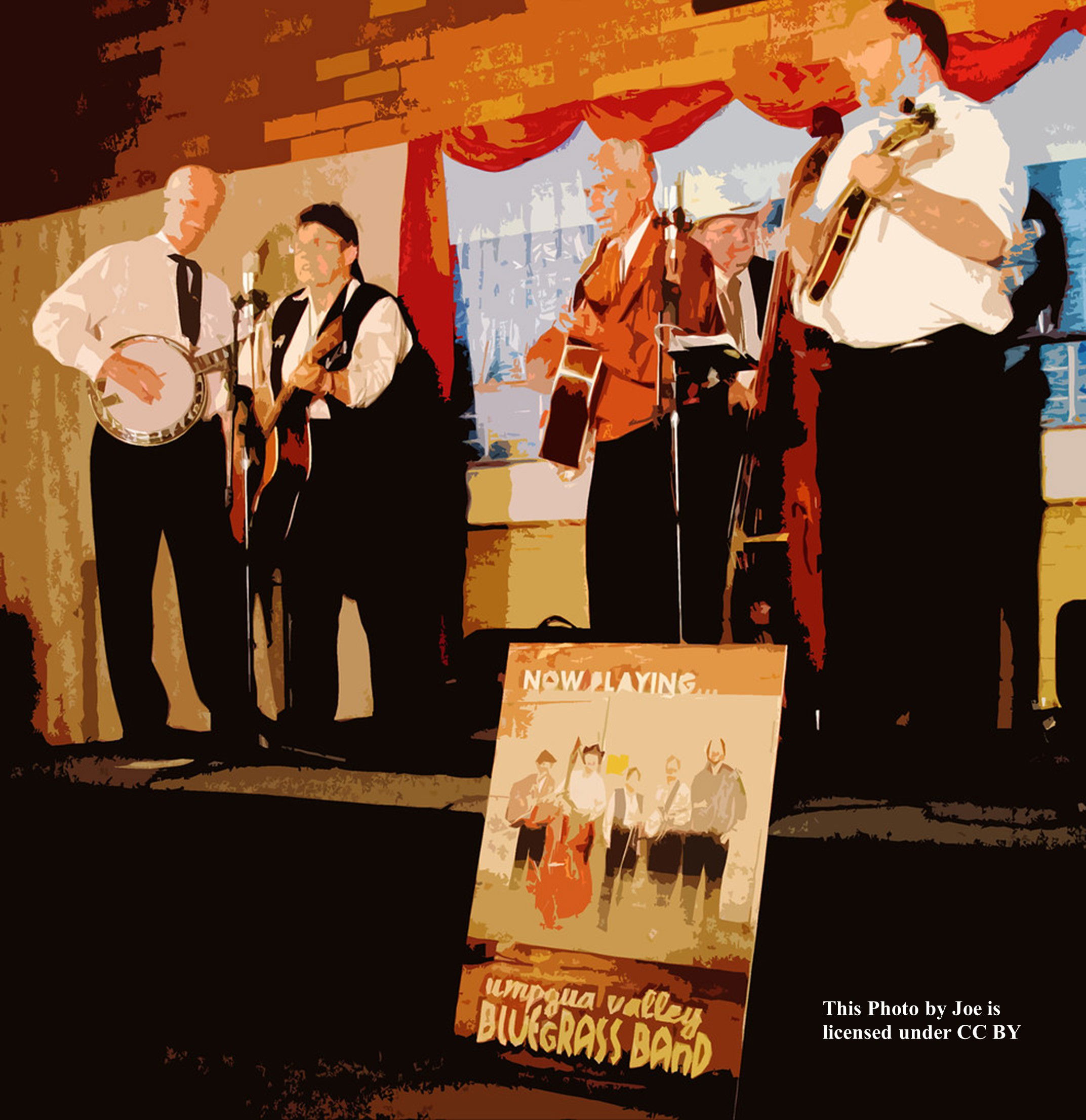
10. Building a Sense of Tradition and Legacy
String orchestras often have rich traditions and legacies that stretch back for generations. By participating in such programs, students become part of this tradition, connecting with the past while contributing to its ongoing story. This sense of legacy can instill a deep appreciation for the arts and the importance of preserving cultural heritage.
String players, especially violin and bass players, also have a link with Appalachian Mountain folk music and are better equipped to join that fellowship after having played in a string orchestra.
String players also have a connection with ancient Hebrew worship musicians such as King David, who played psaltery and harp, both of which were forerunners of modern string instruments. And, if they have had to have read different clefs for different instruments, they will understand the references that King David made about the different instruments that he used for specific Psalms.
In conclusion, string orchestra programs enhance high school curricula in multifaceted ways, from cultivating musical proficiency to fostering discipline, teamwork, and emotional expression. The benefits extend far beyond the realm of music, positively influencing students' personal and academic development. As students bow their strings and create beautiful music, they embark on a journey that enriches their high school experience and equips them with valuable skills and qualities for a lifetime of success and fulfillment.
Salt Cellar Creations understands the benefits that a String Orchestra can offer and has a growing library of original works and arrangements to further that cause. Find out more about what Salt Cellar Creations has to offer for String Orchestras HERE. Explore the available music HERE.
SCC can also compose an original piece for you or do a custom arrangement for you. There are two ways that this can be done; one is much more affordable than the other. And SCC is always looking for ideas of pieces to arrange or suggestions for original pieces.
We have sold music not only in the US but in Canada, the United Kingdom, France, Australia, New Zealand and Austria. Please visit the WEBSITE or CONTACT US to let us know what we can do for you!